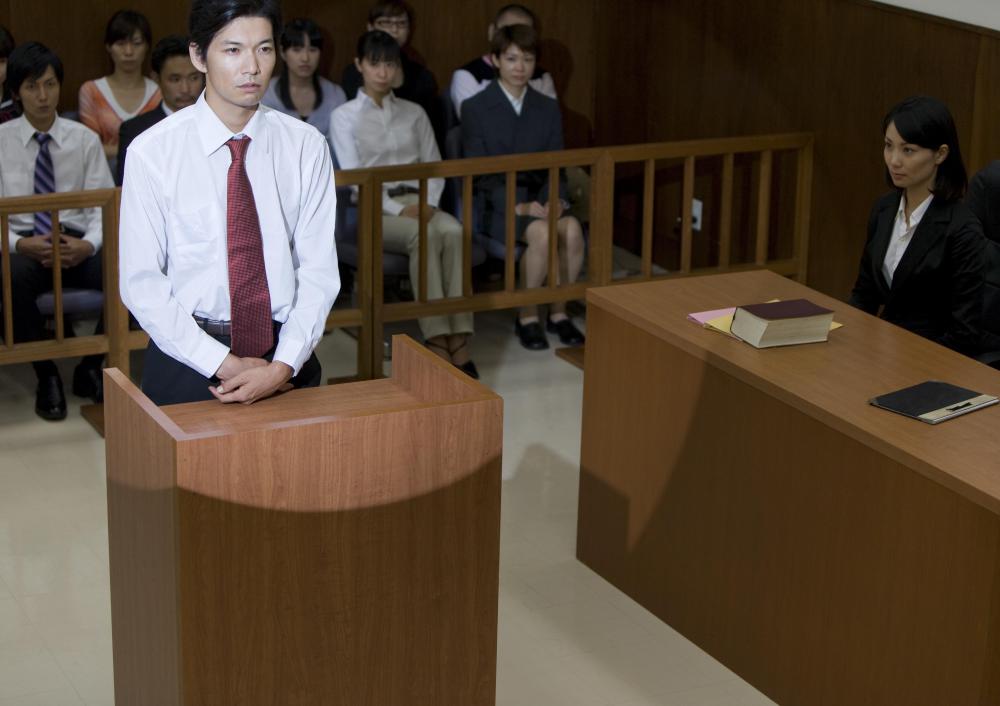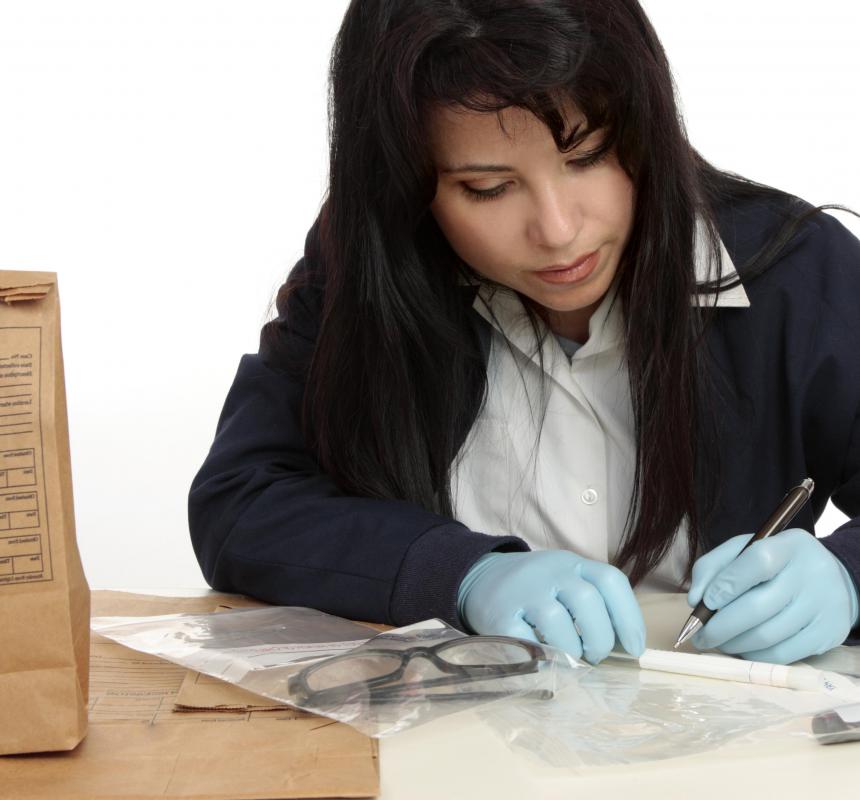At WiseGEEK, we're committed to delivering accurate, trustworthy information. Our expert-authored content is rigorously fact-checked and sourced from credible authorities. Discover how we uphold the highest standards in providing you with reliable knowledge.
What is the Law of Evidence?
The law of evidence refers to the body of law governing what is admissible within a trial. Evidence refers to the information presented to the judge or jury that is used to decide a case. All legal cases must be entirely decided on the basis of applying the law to the given evidence, so the laws relating to what evidence is admissible are very important.
Each jurisdiction has different laws relating to admissible evidence. In general, however, the laws are designed to ensure a fair and impartial trial for the plaintiff and the defendant. The rules are designed to ensure that each party can present the facts, opinions and information necessary to prove the elements of his or her case.

In the United States, there are several laws relating to evidence. One law of evidence deals with how that evidence is collected. Evidence must be collected in such a way that a suspect's constitutional rights are upheld. This means that the police or law enforcement officials must have probable cause to conduct a search, and they must obtain a warrant in most cases before doing so, with certain limited exceptions, such as if they see contraband in plain sight. Under the law of evidence in the United States, evidence illegally obtained in violation of constitutional rights, as well as all other evidence found on the basis of an initial improper search, is not admissible in a court of law.

Another law of evidence in the United States is the hearsay law. This law stipulates that a witness cannot testify to anything he learned secondhand. In other words, a witness can't share his opinion on what he believes the defendant was thinking, nor can he report anything on the witness stand that any other person said to him. For example, a witness could not go on the witness stand and say "I believed Matt was going to rob the bank," nor could he say "Joe told me Matt was going to rob the bank" as both of these statements would be considered hearsay.

The law of evidence also dictates that evidence must be relevant. For example, it must go toward proving one of the elements of the crime or go toward creating a defense for the accused. A person cannot submit evidence of general wrongdoing against a defendant, unless that wrongdoing goes toward proving an element of the crime.
AS FEATURED ON:
AS FEATURED ON:














Discuss this Article
Post your comments